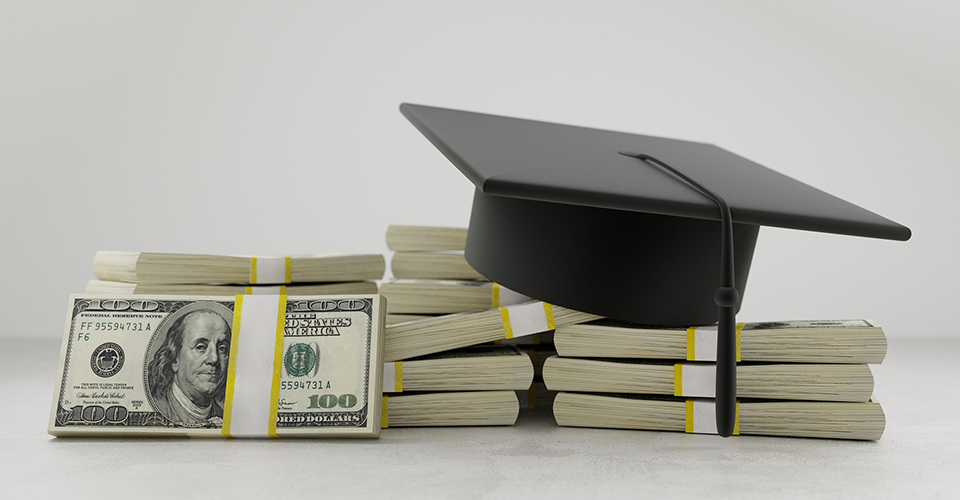Editor’s note:
For the last two years, the basic personal finance class offered in the fall by the College of Pharmacy has topped out on enrollment. Yes, students want to learn more about the fundamentals of managing their money! As a result, an advanced personal finance class was added for the spring semester. (Important note: These classes teach concepts; they do not offer personalized financial advice.)
When pharmacy student Melinda Conley had additional questions, instructor Kunal Amin, Pharm.D., offered to answer them online. Here’s one. If you have other questions, send them to The Pulse at marcom@neomed.edu.
Q. I am not able to take out graduate plus loans due to a poor credit score from a recent divorce. I do not have access to a cosigner, as both of my parents are deceased. What kind of financial advice can you give someone in my situation, trying to pay for professional school and expenses?
A. Before I answer this question, I want to mention that all students should be aware that we have a great resource available in the Office of Financial Aid. Students should consult with the financial aid team for options on next steps and options available. You are in a specialized category, but it’s crucial for all students interested in loans to understand the varieties out there.
First, let’s get into the options available for student loans in general. There are two types: federal and private. Students are initially awarded a financial aid package that consists of federal student loans, which can consist of the Federal Direct Unsubsidized Loan and the Federal Direct Grad PLUS Loan. Providing the student meets the qualifiers as outlined in the promissory note and are not defaulted on a previously borrowed federal student loan, there are no issues obtaining the Federal Direct Unsubsidized Loan.
Students must demonstrate good credit history in order to obtain a Direct Grad PLUS Loan. With the Direct Grad PLUS Loan, the lender is not looking for a specific credit score; rather, they are ensuring you have established credit and you are in good standing with the creditors.
If a student is not able to obtain a Direct Grad PLUS Loan because of credit, the lender, Direct Loans, will allow the student to obtain the loan by either allowing a credit-worthy cosigner to endorse the application or by a process known as credit resolution. In credit resolution, you will provide Direct Loans with documentation that you’ve either resolved a previous credit problem or are working to resolve the issue, with supporting documentation from the creditor.
Private education loans
Another option is to finance your education using a private education loan. These loans are not for everyone. They do not have the different repayment options, deferment, forbearance or forgiveness options that make federal student loans an optimal choice for health professions students. However, they can be more advantageous if a student can be aggressive with payments post-enrollment and know that public service loan forgiveness is not an option for them.
Unlike the Direct Loan program, private education loans require the student to demonstrate a specific credit score in order to be approved. Many times, the student does not have to have a cosigner, but it is often encouraged in order to receive a lower interest rate. If a student is denied a private loan due to credit, the only way to obtain this type of loan is with a credit worthy cosigner.
Students should research the different private education loans that are available and specifically look for programs offered to health professions students. The financial aid office can guide you in your search.
Ways to boost your credit score
Next, I would like to talk about improving a credit score. Most students have minimal or no income while enrolled in college, and they consequently have limited spending power to build a good credit score. But students should not be discouraged if they are denied a private student loan.
I strongly suggest that pharmacy students find an internship for weekends if they are able to handle academic workload (or during breaks, if not) to make an income and start paying off overdue balances from creditors. This is the first step to start getting out of debt and building a good credit score.
Many banks and lenders offer student credit cards with a low spending limit. Using such a card and paying off the balance in full each month will help you establish a good credit score.
Best practices for credit cards
One piece of advice I do give students regarding use of credit cards is to ONLY use them for your budgeted needs (for example, gasoline, utility bills or groceries) and NOT for so-called wants (expensive dinners out, designer clothing, phones, etc.). Remember, an average consumer spends 20 percent more money when they use credit cards instead of cash.
The last thing you need is credit card debt on top of your student loans.
